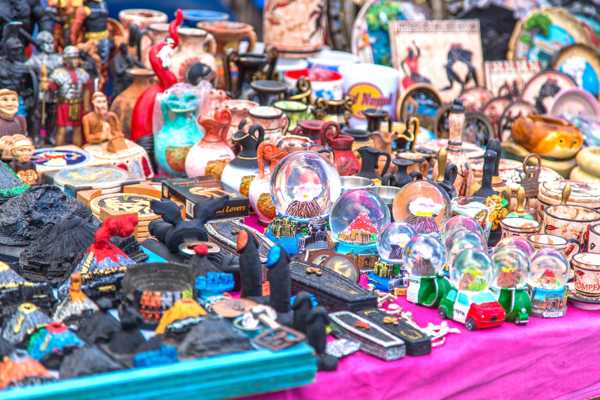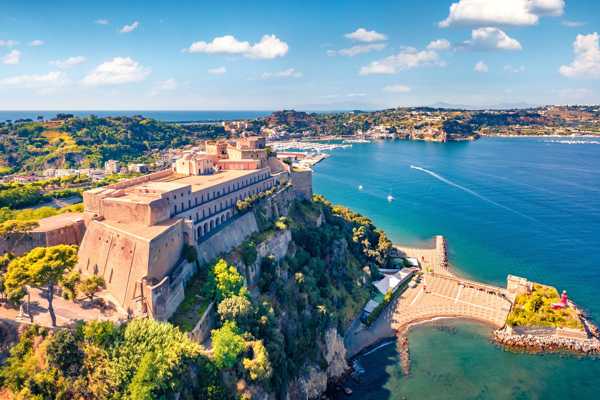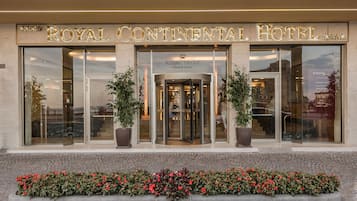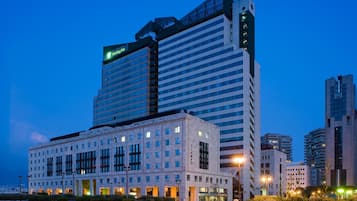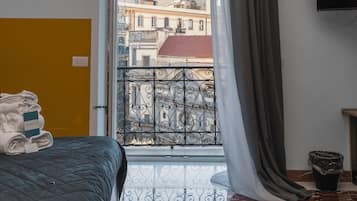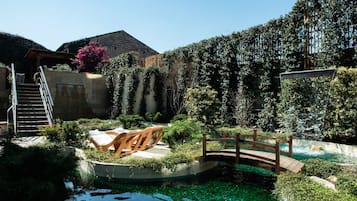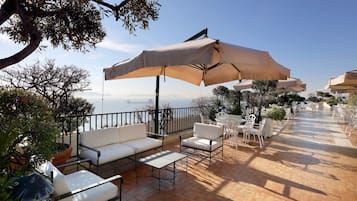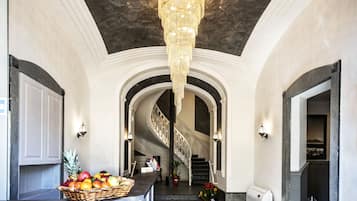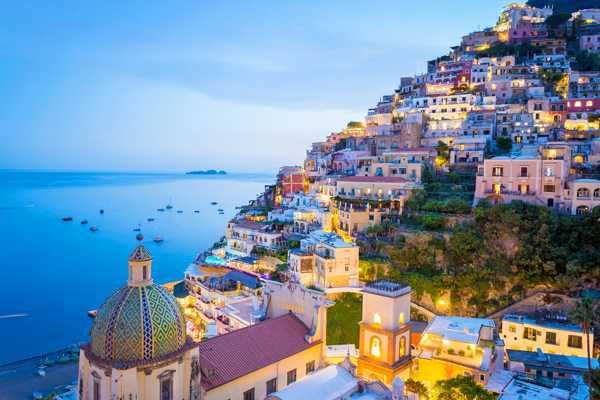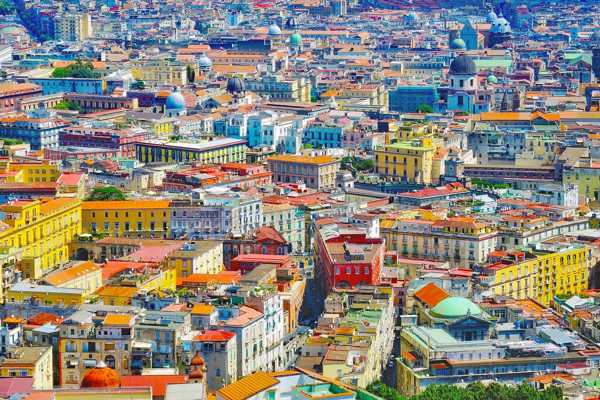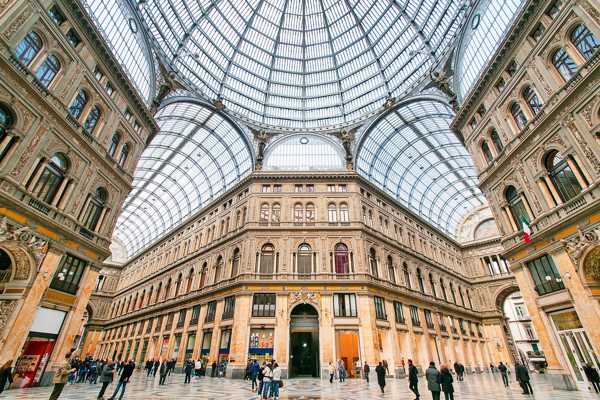The best road trips near Naples include coastal towns and tranquil villages with breathtaking vistas. Venture into this southern part of Italy and be greeted by spectacular coastlines, dormant volcanoes, Greco-Roman archaeological sites, and quaint towns depicting la bella vita (the good Italian life).
Besides historical sites and hidden treasures worth exploring, a road trip to Naples also introduces you to the rich flavours of the Campania region with its buffalo mozzarella and flavorful and plump San Marzano tomatoes. Check out these great ideas for a road trip near Naples for your next escape to Campania.
- 1
Pompeii Archaeological Park
Once a provincial centre, now a historical landmark
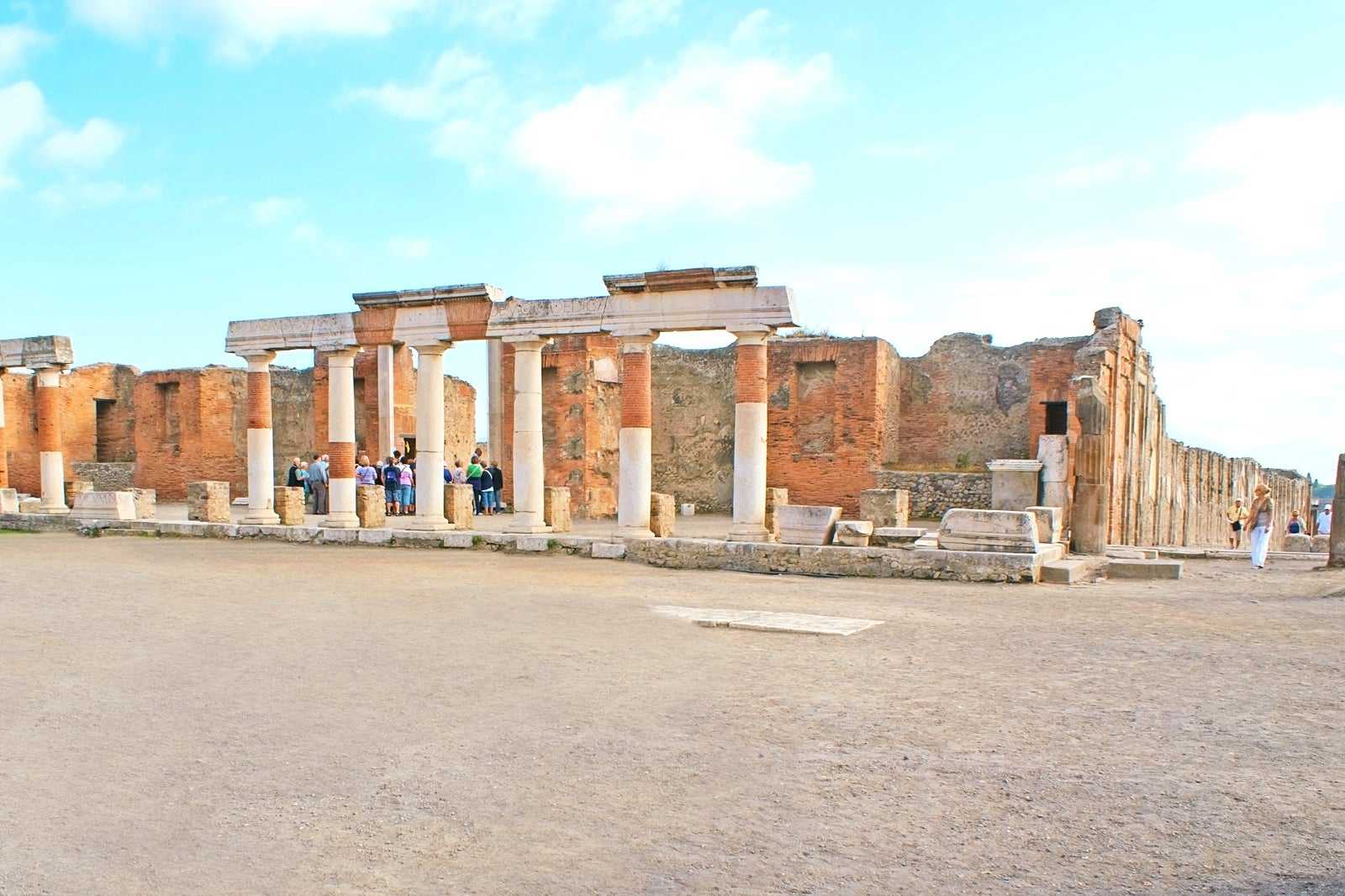
- ประวัติศาสตร์
- ถ่ายรูป
Pompeii Archaeological Park, a half-hour road trip southeast of Naples, is a place of historical significance, highlighted by the catastrophic eruption of Vesuvius in AD 79. Before the incident, Pompeii was a thriving city of noblemen and Roman citizens.
Vesuvius’ eruption wiped out thousands of residents, leaving remnants of homes, communal spaces, and monuments in its wake. Pompeii’s well-preserved site reveals excavated homes and cobbled streets open for visitors to explore. The Amphitheatre of Pompeii, House of the Faun, the Sanctuary of Venus, the Temple of Apollo, and the Villa of the Mysteries are notable sites worth checking out.
ที่ตั้ง: Via Villa Dei Misteri, 2, 80045 Pompei, Naples, Italy
เปิด: Daily from 9 am to 5.30 pm
โทร: +39 081 857 5111
แผนที่ - 2
Paestum
An ancient Greek city with rich architecture
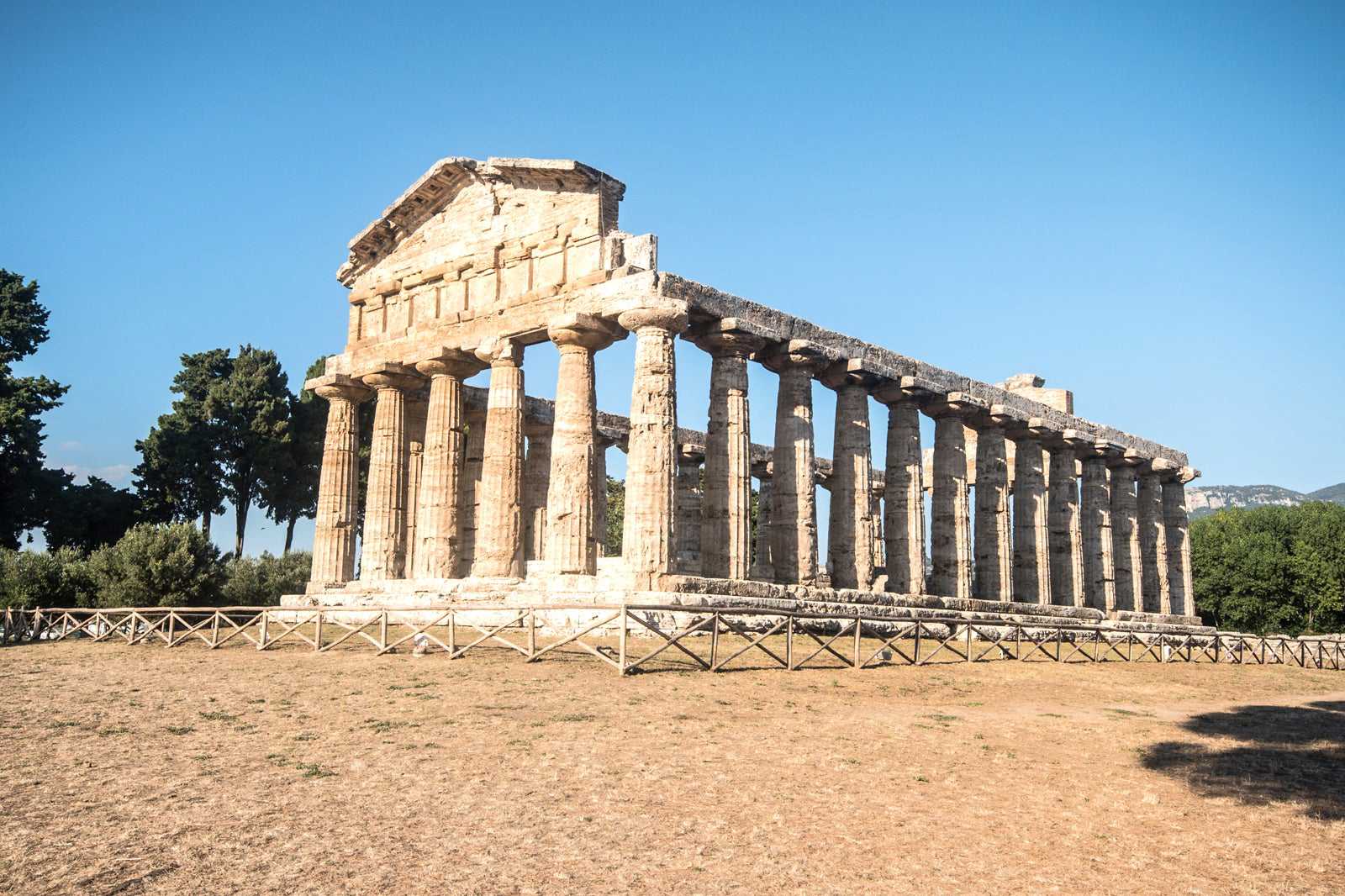
- ประวัติศาสตร์
- ถ่ายรูป
Paestum, also known as the Greek city of Poseidonia, sits along the west coast of Italy. Once a well-known centre of trade, Paestum was conquered by the Lucanians before becoming a Roman colony in the 3rd Century BCE. The city is famous for its well-preserved Greek temples and historical museum of frescos, artefacts, and ceramics.
Paestum’s stunning temples are a reflection of Greek culture and heritage. The Temple of Hera I (the Basilica), the Temple of Hera II (or Temple of Neptune), and the Temple of Athena (or Temple of Ceres) feature Doric columns and limestone facades that echo the Roman empire’s history. A 90-minute drive southeast of Naples, the museum is open daily but closes early at 1.40 pm on the 1st and 3rd Mondays of the month.
ที่ตั้ง: 84047 Paestum SA, Italy
เปิด: Daily from 8.30 am to 7.30 pm
โทร: +39 082 881 1023
แผนที่ - 3
Amalfi Coast
A magical terrain on the Tyrrhenian Sea
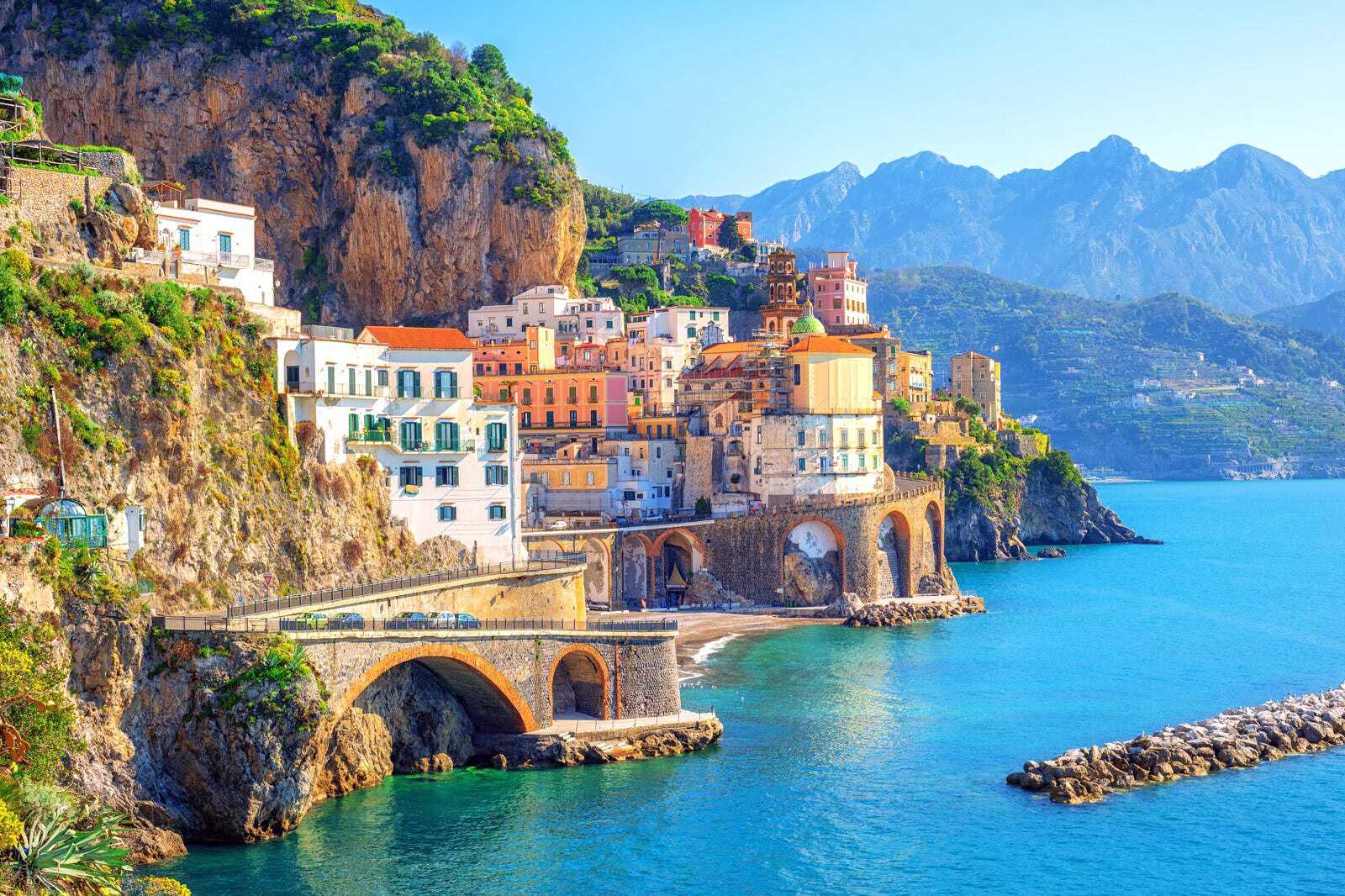
- ผจญภัย
- กลุ่ม
- ประวัติศาสตร์
- ถ่ายรูป
- ขาช้อป
The Amalfi Coast is a scenic road trip just an hour southeast of Naples. The namesake town of Amalfi sits at the opening of the Valley of Mills (Valle Dei Mulini), and it’s so iconic with its sparkling white homes hugging the rock face of the Lattari Mountains. Concealed alleyways and stairways connect Amalfi’s homes across the mountain’s facade.
This stunning town draws visitors with its views and scents of lemon blossoms, sea breezes, and vibrant masses of bougainvillaea. Stroll through the town and along the sandy shores to soak up the beauty of the Amalfi coast. Majolica domes, the lovely Cathedral of St. Andrew, and the Cloister of Paradise (a graveyard once reserved for wealthy citizens and priests) are among the highlights worth exploring.
ที่ตั้ง: Amalfi Coast, 84011 Amalfi SA, Italy
แผนที่ - 4
Sorrento
A paradise with gorgeous hiking trails
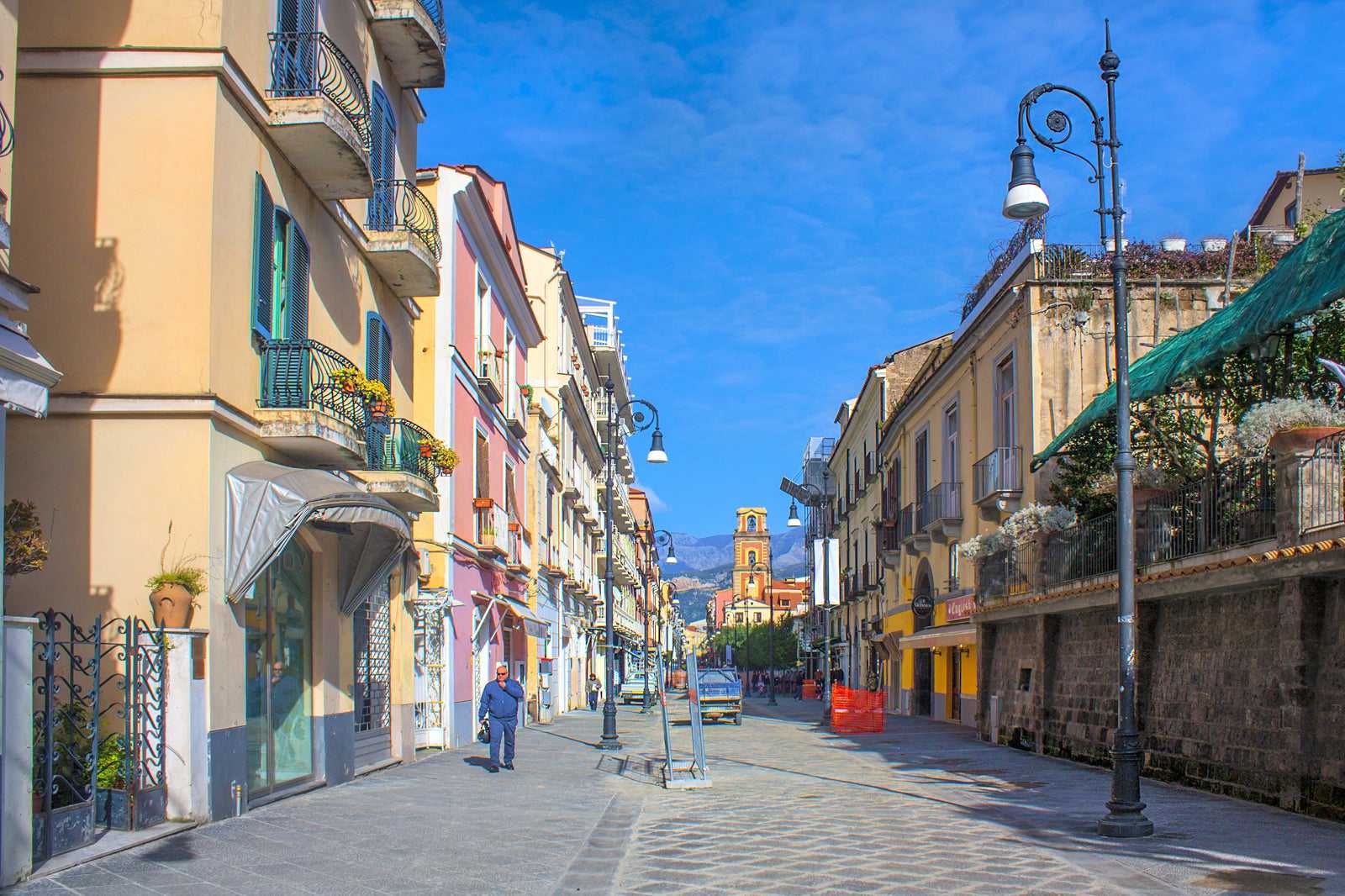
- ผจญภัย
- ประวัติศาสตร์
- ถ่ายรูป
The Sorrento Coast is a rugged precipice with undulating terrains at the end of the Bay of Naples. Impressive cliffs circle the coast and plunge into the Mediterranean Sea. Sorrento was originally a Greek colony in Magna Grecia (named so after it was colonised by ancient Greeks) before it was taken over by the Romans.
Sorrento is famous for its terraced gardens of oranges, grapes, lemons, and olives – ingredients that feature in several local dishes. You can visit hilltop hamlets with medieval charm, view breathtaking sunsets and sunrises from Massa Lubrense, and hike past lovely trails that open up to deep gorges and hidden coves.
ที่ตั้ง: Sorrento, 80067 Metropolitan City of Naples, Italy
แผนที่ - 5
Ischia Island
Medieval sites, natural springs, and authentic local flair
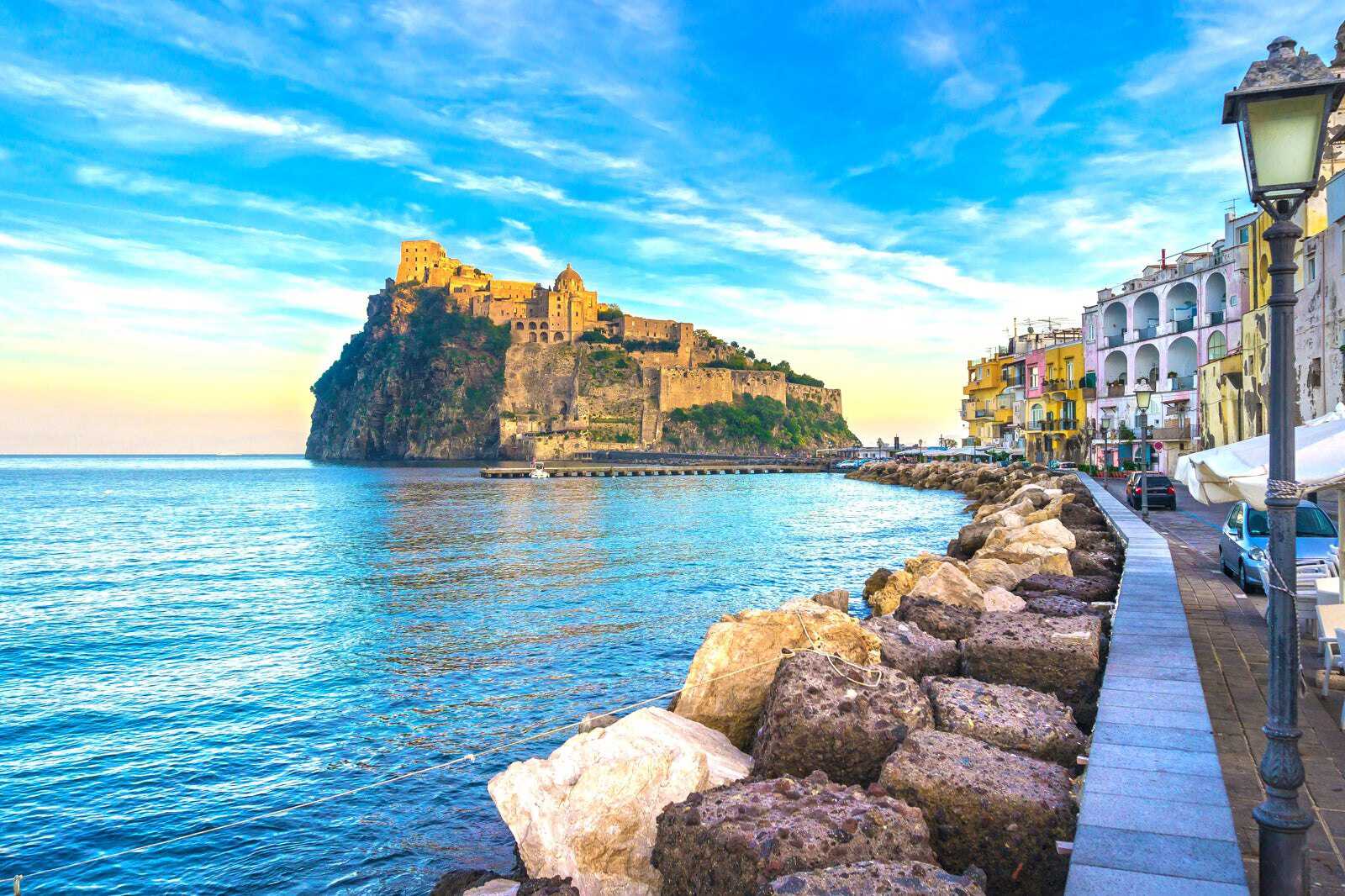
- ผจญภัย
- ครอบครัว
- ประวัติศาสตร์
- ถ่ายรูป
Ischia is one of the 3 main islands in the Bay of Naples and the largest of the trio. Located on the Tyrrhenian Sea, the island is the perfect spot for travellers who enjoy hiking with a touch of tranquillity. Ischia is home to acres of volcanic hills and mountainous terrain that both adventure seekers and laidback strollers will equally enjoy.
Stop by Aragonese Castle (Castello Aragonese d'Ischia), an impressive space that serves as a museum today. The Sant’ Angelo village, Parco Termale Negombo (a location with thermal springs and a tucked-away beach), and Maronti Beach are a few of Ischia’s other highlights.
ที่ตั้ง: Ischia, Metropolitan City of Naples, Italy
แผนที่ - 6
Phlegraean Fields
A land of mystery, magic, and myth
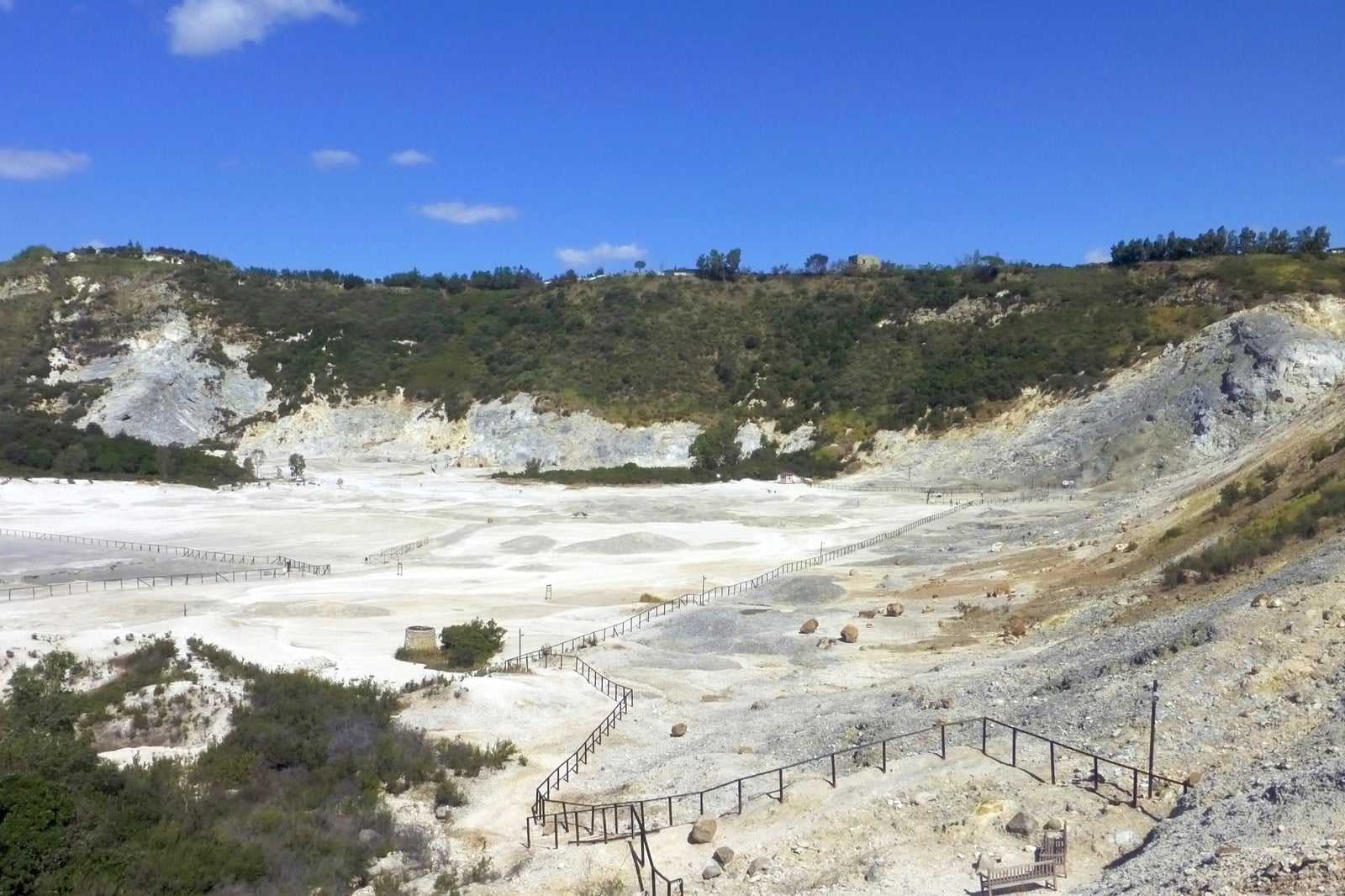
- ผจญภัย
- ประวัติศาสตร์
- ถ่ายรูป
The Phlegraean Fields or Campi Flegrei (‘burning fields’ in Italian) is home to an active spread of volcanoes. Situated in the Gulf of Pozzuoli, the fields are monitored closely by the Vesuvius Observatory for volcanic activity.
This region is known for its thermal springs, beaches, natural reserves, and archaeological wonders. The seaside town of Puzzuoli has lovely sites worth visiting, such as the Temple of Serapis and the Flavian Amphitheatre. Alternatively, visit Averno Lake, named the ‘entrance to hell’ by Roman poet Virgil in his epic poem, The Aeneid. Averno Lake occupies a dormant volcano between the towns of Cuma and Lucrino.
ที่ตั้ง: Phlegraean Fields, 80078 Pozzuoli, Metropolitan City of Naples, Italy
เปิด: Tuesday–Sunday from 9 am to 1 pm (closed on Mondays)
โทร: +39 081 523 3797
แผนที่ - 7
Herculaneum
A well-preserved archaeological wonder
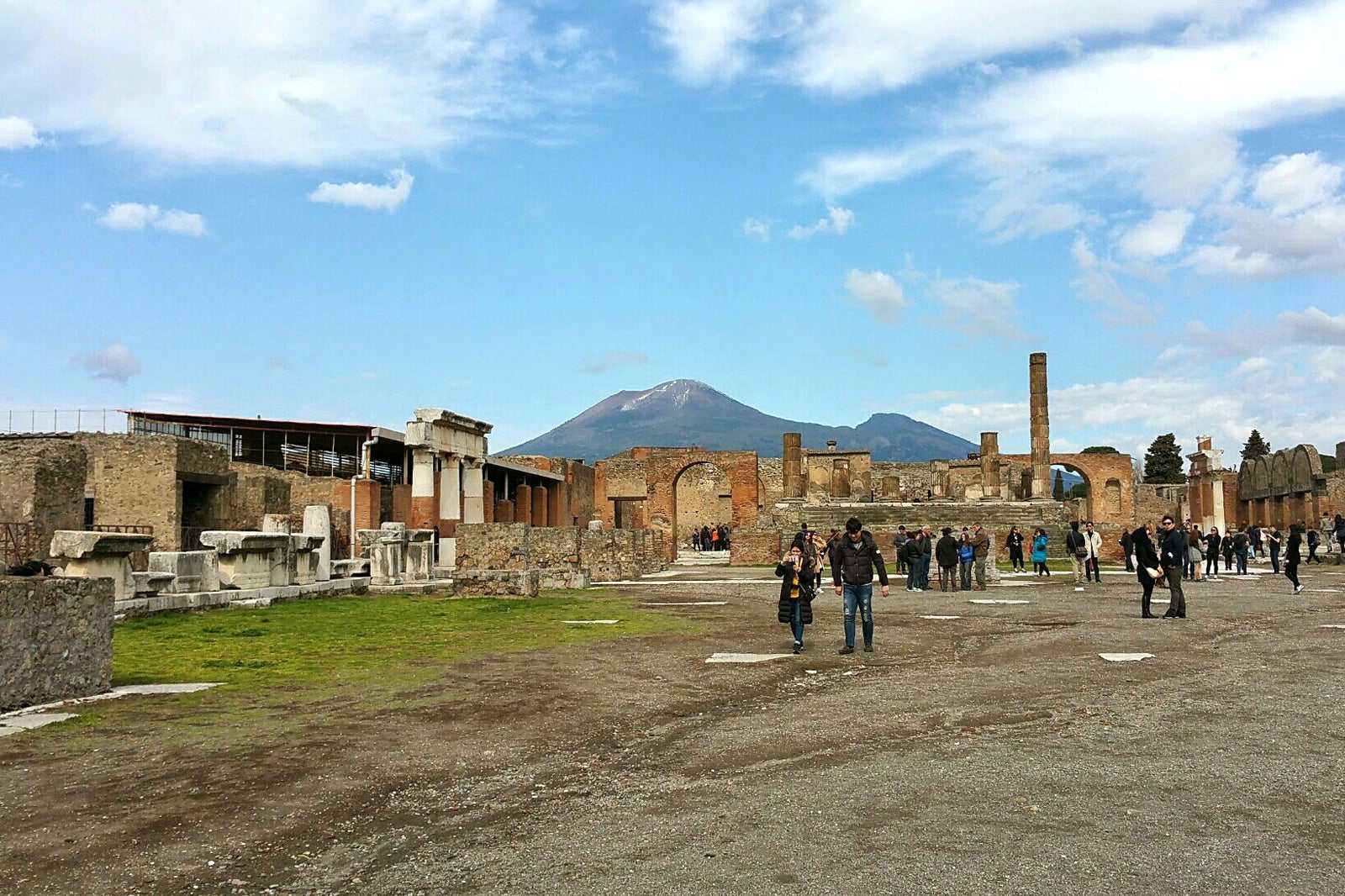
- ประวัติศาสตร์
- ถ่ายรูป
Herculaneum is an archaeological site in Ercolano, a half-hour drive from Naples. Named after the god Hercules, it was seized by the Greeks in the 5th century BC and was an affluent seaside town before it was engulfed by magma from Vesuvius’ eruption in AD 79. Excavations in the region revealed well-preserved dwellings and domestic artefacts along with the bones of over 300 Roman inhabitants.
Take a trip to the Mosaic Atrium house for stunning views of the Bay of Naples within a grandiose tiled interior space. Then, venture to the garden at the House of Neptune and Amphitrite, a lovely court filled with vivid paintings of the sea god and his wife.
ที่ตั้ง: Corso Resina, 187, 80056 Ercolano NA, Italy
เปิด: Thursday–Tuesday from 8.30 am to 6 pm (closed on Wednesdays)
โทร: +39 081 777 7008
แผนที่ - 8
Procida Island
A cultural capital with strong traditional roots
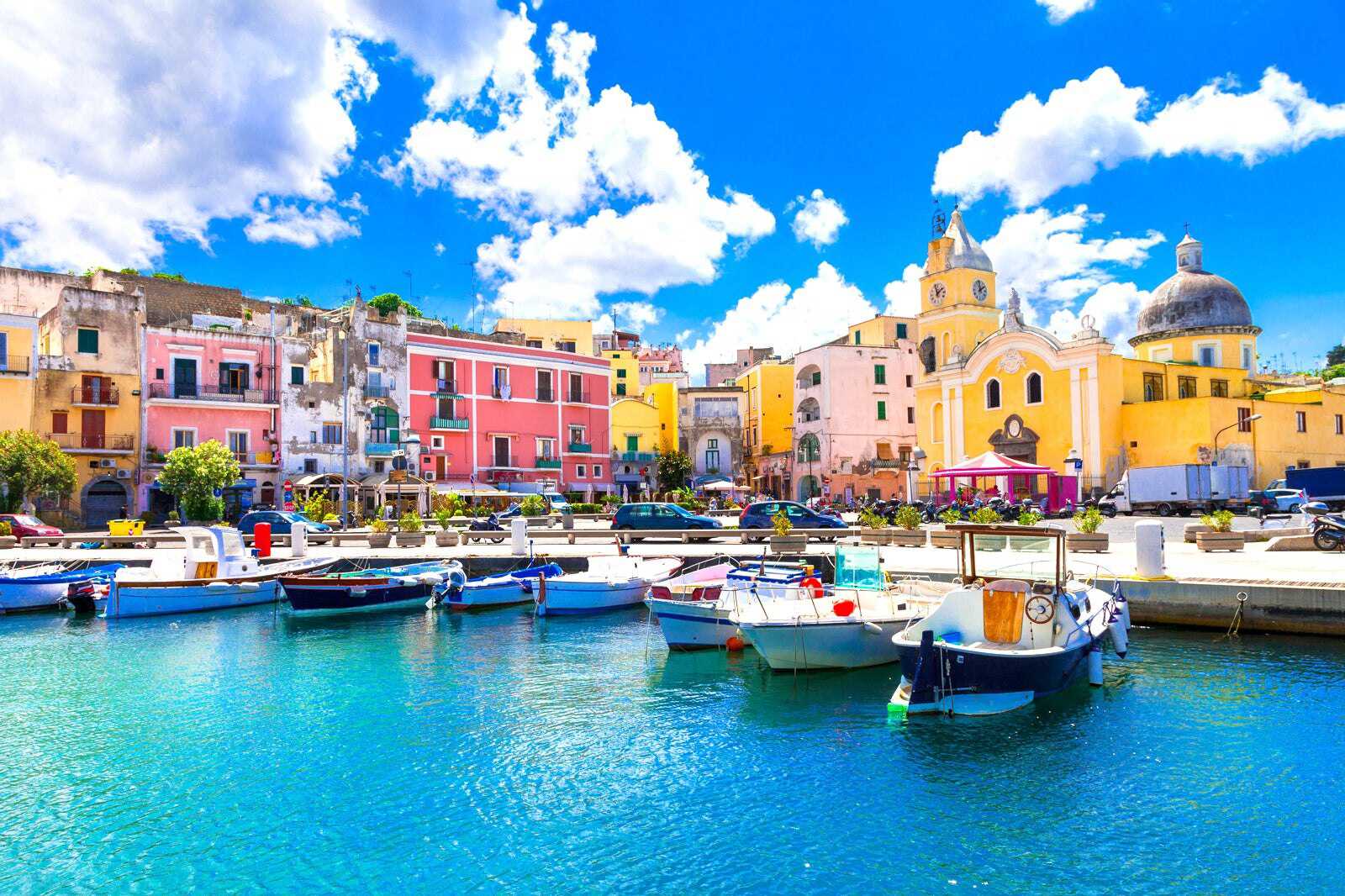
- ประวัติศาสตร์
- ถ่ายรูป
Procida is the smallest island in the Bay of Naples and lies between the islands of Capri and Ischia. While it’s not frequently visited, it boasts over a hundred natural hot springs and has been called the ‘cultural capital of Italy’. Traditional shops, quaint cafes, and a generous display of pastel-hued architecture dot this lovely island.
Despite its shiny new status in the art community, the residents are passionate about preserving the island’s traditional roots. It’s why you won’t find designer stores or fancy thermal spas but a more soul-enriching experience at this active fishing outpost. The island’s main attraction? Absolute tranquillity for lovers of slow travel. Do stop by the 18th-century Chiesa di Santa Maria Della Pietà, the black sandy beach of Pozzo Vecchio, and the natural reserve of Isola di Vivara.
ที่ตั้ง: 80079 Procida, Metropolitan City of Naples, Italy
แผนที่ - 9
Royal Palace of Caserta
A complex built for royalty
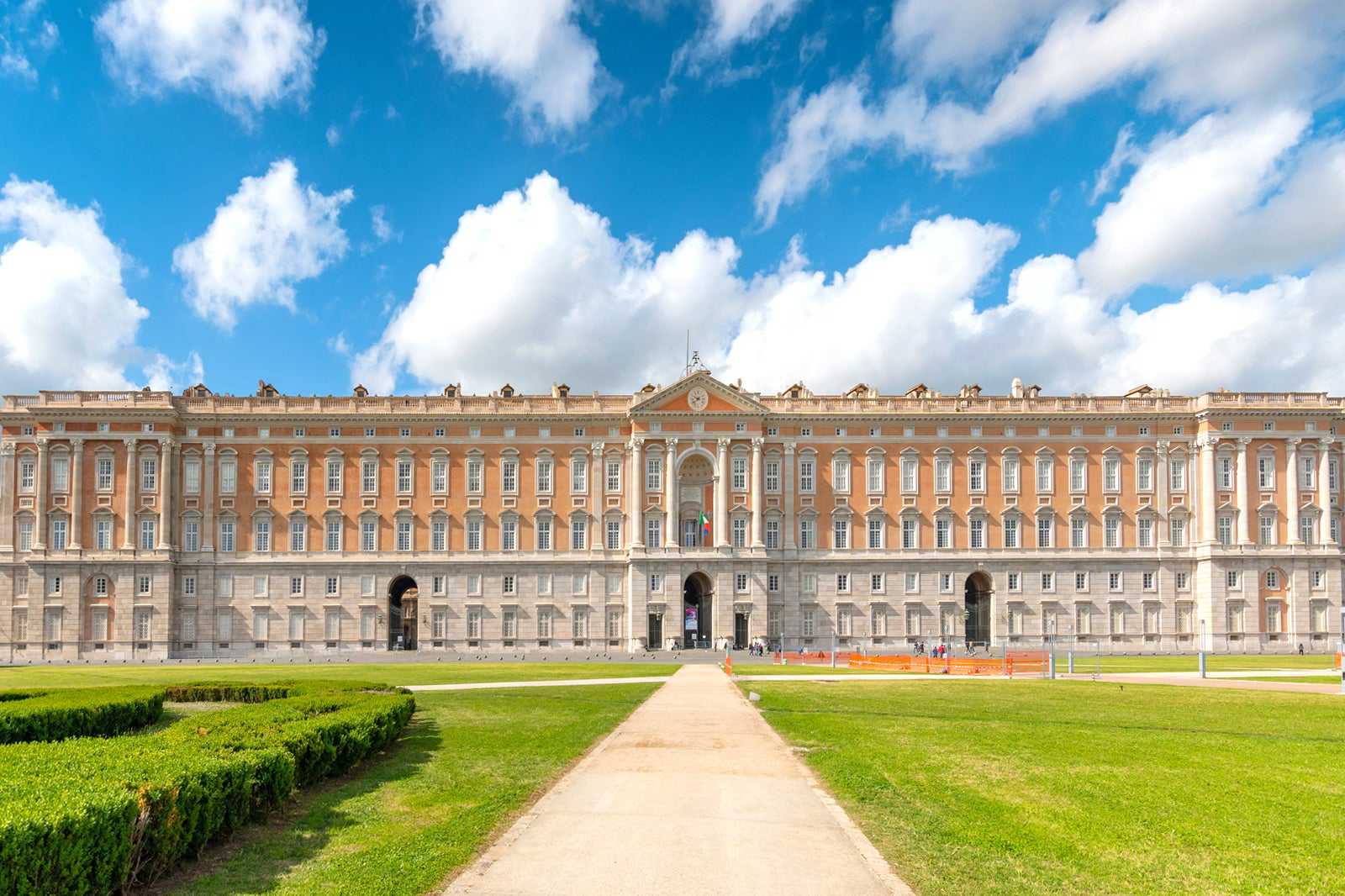
- ประวัติศาสตร์
- ถ่ายรูป
The Royal Palace of Caserta is home to a regal highlight, the English Garden. Once built to house royals from across the country, the landmark palace and gardens just half an hour’s road trip from Naples, features a large network of basins, fountains, hunting lodges, sprawling manicured gardens, and a silk factory.
It was built as a place of relaxation for royalty and houses some of the rarest plant species from around the world. Visitors get to explore the palace grounds on horse-drawn carts or bikes. Feast your eyes on the property’s natural forests, decorative ancient ruins, breathtaking promenades, and thriving botanical gardens spread across a baroque-inspired, multi-directional estate.
ที่ตั้ง: Giardini Reali - Parco Reggia di Caserta, Piazza Carlo di Borbone, 81100 Caserta CE, Italy
เปิด: Wednesday–Monday from 8.30 am to 7.30 pm (closed on Tuesdays)
โทร: +39 0823 448084
แผนที่ - 10
Capri Island
One of Italy's most beautiful and fashionable islands
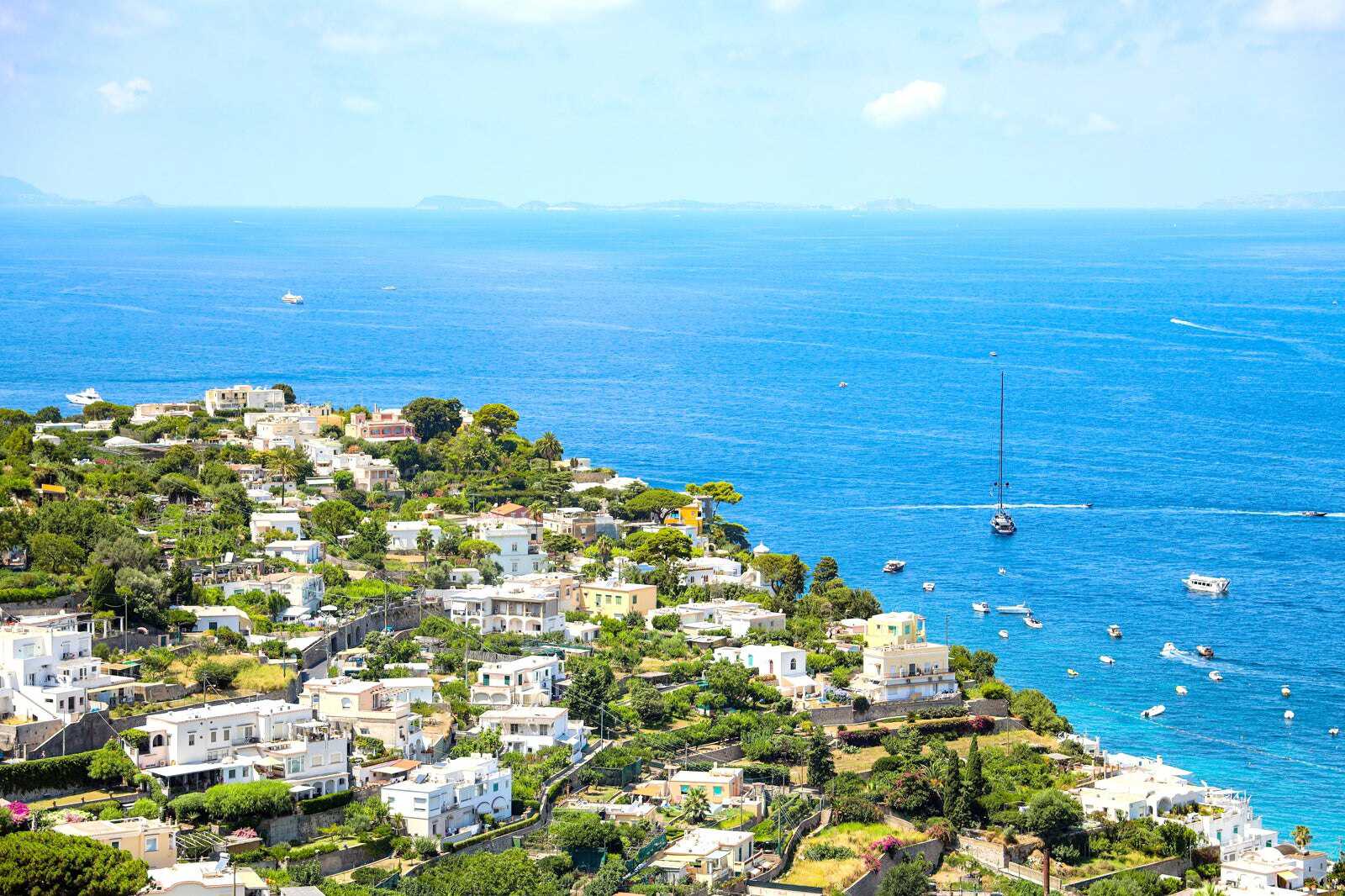
- ประวัติศาสตร์
- ถ่ายรูป
Capri is one of 3 beautiful islands that dot the Bay of Naples. It is best known for its captivating natural beauty, delectable local cuisine, and white pebble beaches. The island is encompassed by hidden coves and grottos that you can dive into and explore up close.
The best way to explore the island is by boat, especially when travellers take up space along the beach. Hire a skipper or book a guided tour on a larger boat that cruises past beautiful coastlines. For a day of sunbathing, you can relax at the freely accessible Marina Piccola Beach. Not far away is the Faraglioni rock formation with its limestone stacks pointing up against a blue sky. Check out the Blue Grotto, which reveals an optical effect created by light streaming into the cave. Roman emperor Tiberius commissioned statues around the iconic grotto for its mystical beauty. Rowboats venture to the spot with visitors for a closer look.
ที่ตั้ง: Capri, Metropolitan City of Naples, Italy
แผนที่


